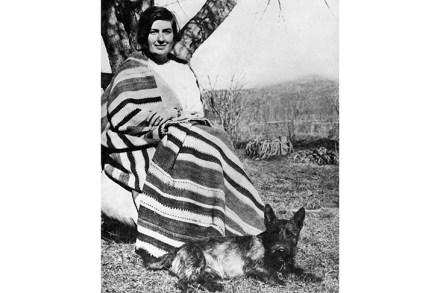Extremes of passion: What Will Survive of Us, by Howard Jacobson, reviewed
There is not going gently into that good night, and then there is teetering into it on spiked-heel boots while strapped into a leather corset in search of clandestine kicks among like-minded fetishists. If it sounds an exhausting and chilly way to spend an evening, well, it is. At least, that’s how it feels to Sam Quaid, the middle-aged playwright who is beset by misgivings – he himself is dressed in ‘the more chicken-hearted guise of a fallen Quaker who had never seen the sun’ – but gamely determined to accompany his lover, Lily. Where is Sam’s obeisance going to lead him, or Lily? Here is where the novel becomes



